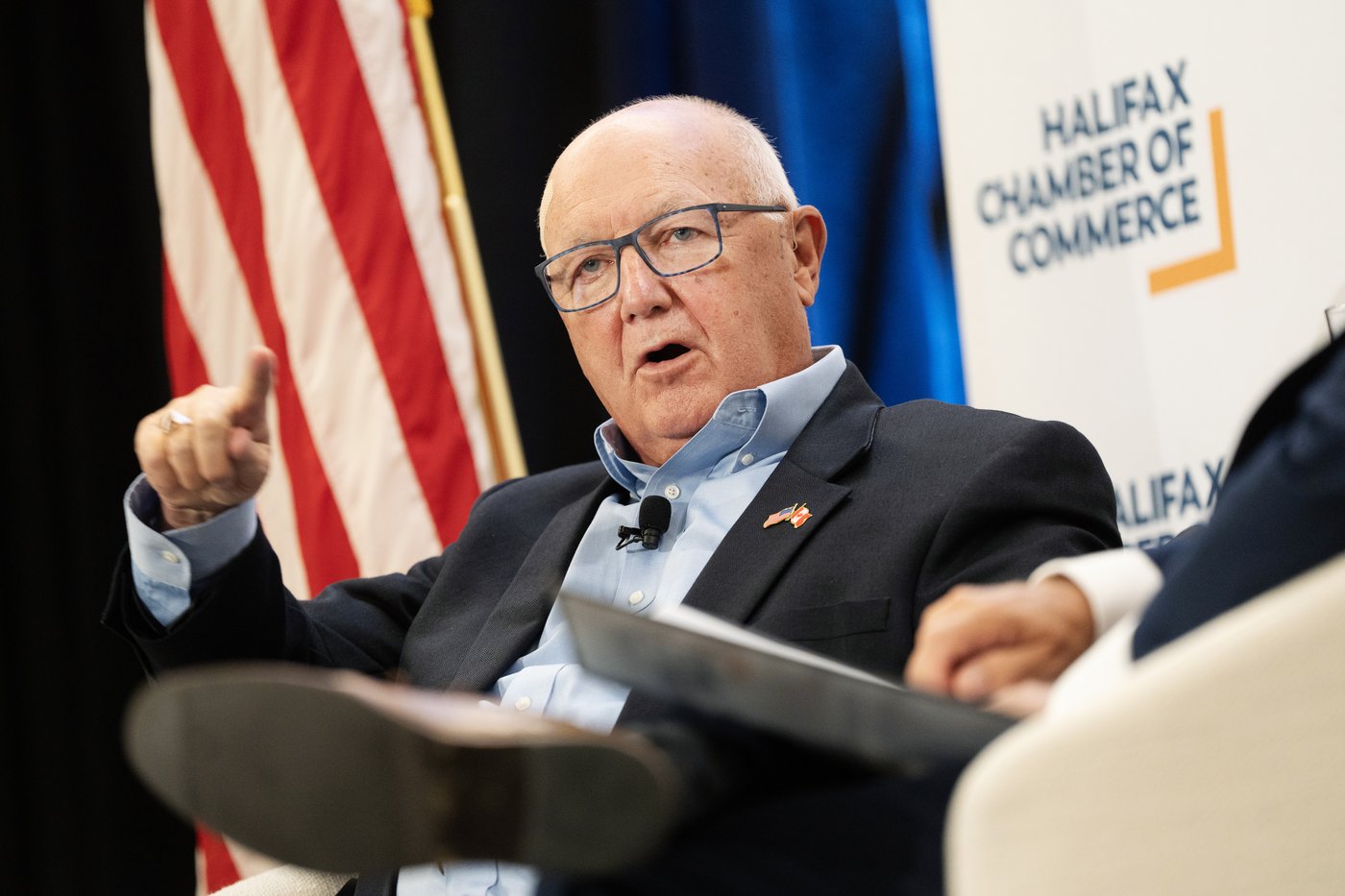Elevate your local knowledge
Sign up for the iNFOnews newsletter today!
Sign up for the iNFOnews newsletter today!
Selecting your primary region ensures you get the stories that matter to you first.

HALIFAX — The U.S. ambassador to Canada took aim at those who use the term “trade war” to describe economic tension between the two countries at an event in Halifax Thursday, saying he was frustrated by the “elbows up” rhetoric.
Pete Hoekstra made the remarks at a luncheon hosted by the Halifax Chamber of Commerce in the city’s downtown.
“I’m disappointed that I came to Canada, a Canada that (where) it is very, very difficult to find Canadians who are passionate about the American-Canadian relationship. You ran a campaign where it was anti-American. ‘Elbows up.’ … It was an anti-American campaign. That has continued. That’s disappointing,” he said.
Prime Minister Mark Carney used the “elbows up” expression frequently on the election campaign trail last spring, including in a video he filmed with comedian Mike Myers. The term is a reference to hockey players keeping their elbows up to protect themselves on the ice from their opponents.
The ambassador also complained about Canadian media and politicians who have characterized the Canada-U.S. economic relationship as being a trade war, which he finds concerning.
“A cabinet minister came out and said it’s a trade war with the United States. We’re at war with the United States. I think that’s a dangerous place to go,” Hoekstra said.
Finance Minister François-Philippe Champagne said Wednesday it’s “sad” that the U.S. “turned its back” on Canada by starting a trade war that is now forcing Ottawa to “reinvent” the national economy.
Champagne also said “a lot of the costs” the country must carry in the upcoming federal budget are “directly related to the trade war that has been imposed on Canada.”
“It is sad, I would say, that our largest trading partner turned its back on Canada, which has led to us having to reassess how we’re going to build the economy of the future,” Champagne told reporters after the Liberals’ Wednesday caucus meeting.
His comments came after Hoekstra said Tuesday the Donald Trump administration had hoped to reach a “much bigger” deal with Canada that would go beyond renegotiating the current free trade pact.
Responding to a question from reporters about Hoekstra’s comments, Carney said Thursday a “bigger deal” that’s in the interest of both Canada and the United States “is not on the table, but it’s still possible.”
Carney, who was in Mexico to sign an economic partnership pact, said the countries have the best trade agreements with the United States. He added that a process is just beginning with reviews and consultations in both countries about how that relationship can be improved.
“While those consultations are going on, of course we’re having bilateral discussions with the United States, so you may see improvements along the way,” Carney said.
“We have the ambition, but a deal is a deal, and a deal has to go for both sides, and Canada will agree to a deal that’s in the best interest of Canadians.
“It should not surprise anyone, including the U.S. ambassador.”
The ambassador said Canada’s “relative position” has improved significantly over the past seven months, but then “your cabinet describes this as a relationship that America has turned its back on, and that you are going to respond in a way that says we are at war with America. I think that’s a bad place to go.”
Canada would not have what he described as the best tariff rate in the world if the two countries were actually at war, Hoekstra said.
The ambassador said he appreciated that Carney has said in the House of Commons that Canada’s deal with the U.S. is the best of any country.
“That helps. That helps take the tone and tenor of the debate down,” Hoekstra said.
Hoekstra went on to say that he’s disappointed that many provinces are still not selling American alcohol and that Canadian politicians have been discouraging travel to the U.S.
“America’s not saying that, we don’t say: ‘Don’t go to Canada,'” he said.
Towards the end of the speaking engagement Hoekstra said that despite the tension, he is optimistic for the future of Canada-U.S. relations. He said he believes they will reach a trade agreement that will be “enduring” and builds off the success of their long-standing relationship.
Canada, the U.S. and Mexico are inching toward a major review of the trilateral Canada-United States-Mexico Agreement due next year, with preparations for the talks taking place behind the scenes.
Carney has said he’s hoping to reach smaller sectoral deals with the U.S. president to de-escalate the ongoing trade war, and to draft a new economic and security partnership.
This report by The Canadian Press was first published Sept. 18, 2025.
This site is protected by reCAPTCHA and the Google Privacy Policy and Terms of Service apply.
Want to share your thoughts, add context, or connect with others in your community?
You must be logged in to post a comment.